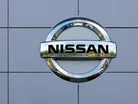How MarkMonitor helped Nissan slam the brakes on counterfeiting

The global automotive industry suffers significantly at the hands of counterfeiters. According to Frost and Sullivan, the global automotive industry loses close to $45 billion annually through counterfeit goods. With customer safety being the number one objective for the automotive industry, this is a significant concern.
For a company like Nissan this presents a wealth of other issues, brand confusion being one of them. Some sellers of aftermarket parts misrepresented them in online marketplaces and on rogue websites as genuine OEM parts, and many listings and websites also contained invalid warranty statements. Counterfeit parts also posed a major product liability risk; these parts look similar to genuine Nissan parts and can quite easily be installed in a car, with the potential to cause serious damage if they fail. The final cost of counterfeit parts can often exceed any savings off the OEM part price many times over.
To help combat these issues, Nissan enrolled in a back-to-back pilot program with MarkMonitor in September 2013 and officially launched an online brand protection partnership with the company in March of 2014. This work has involved the MarkMonitor team becoming a consultant and partner with Nissan, and has helped them to partner with other manufacturers across the auto industry. It has also supported them to host a series of automotive manufacturing calls so that the companies can speak with a unanimous voice on the threat consumers face from counterfeit parts that put drivers and their families in harm’s way.
- RELATED STORIES:
- Nissan and MarkMonitor remove thousands of counterfeit auto parts from the global marketplace
- Many automotive brands may miss 2021 EU emissions targets
- Climbing the ranks in automation
By working with MarkMonitor, the highly engaged Nissan team accomplished several major goals: increasing customer safety, decreasing domain abuse for the Nissan and Infiniti brands, identifying and addressing brand abuse in website content, demonetizing of pay-per-click sites, decreasing brand confusion, and significantly reducing counterfeit listings on multiple marketplace platforms globally.
In terms of figures, Nissan’s MarkMonitor-assisted brand protection strategy helped to successfully remove over 31,700 counterfeit Nissan products, and to enforce over 125,000 marketplace listings which had a total advertised value of over $283 million. Nissan was also able to conduct successful enforcement activities in Asian marketplaces with the help of the Shanghai-based MarkMonitor team, while utilising MarkMonitor relationships and contacts for accuracy and efficiency.
Nissan has always been a lucrative target for brandjackers due to its strong market position and brand leadership, but its work with MarkMonitor means it can now detect the sale of counterfeit Nissan goods online and then educate the dealers about the potential hazards of using these counterfeit parts. “We decided to address what we were seeing in the marketplaces. Within weeks we were delisting counterfeit items as well as educating sellers who had no idea they were infringing,” said Andy Forsythe, part of Nissan’s brand protection team.
On top of all this, and as a direct result of Nissan’s work with MarkMonitor, pay-per-click sites that have ‘Nissan’ in the domain name are prohibited from containing sponsored links. MarkMonitor’s collaborative efforts have helped to aggressively combat online counterfeiting, and to demonstrate the ROI of using these solutions to protect the Nissan brand.
By Chrissie Jamieson, VP Marketing, MarkMonitor, a brand of Clarivate Analytics
- Formula E: Shaping the Innovative Future of EV ManufacturingSustainability & ESG
- SMMT: ZEV Mandate Will Cripple Automotive ManufacturingProduction & Operations
- Stellantis Plant Shutdown Confirms EV Manufacturing ConcernsSustainability & ESG
- Nissan: Striving To Safeguard EV Manufacturing InterestsSustainability & ESG

